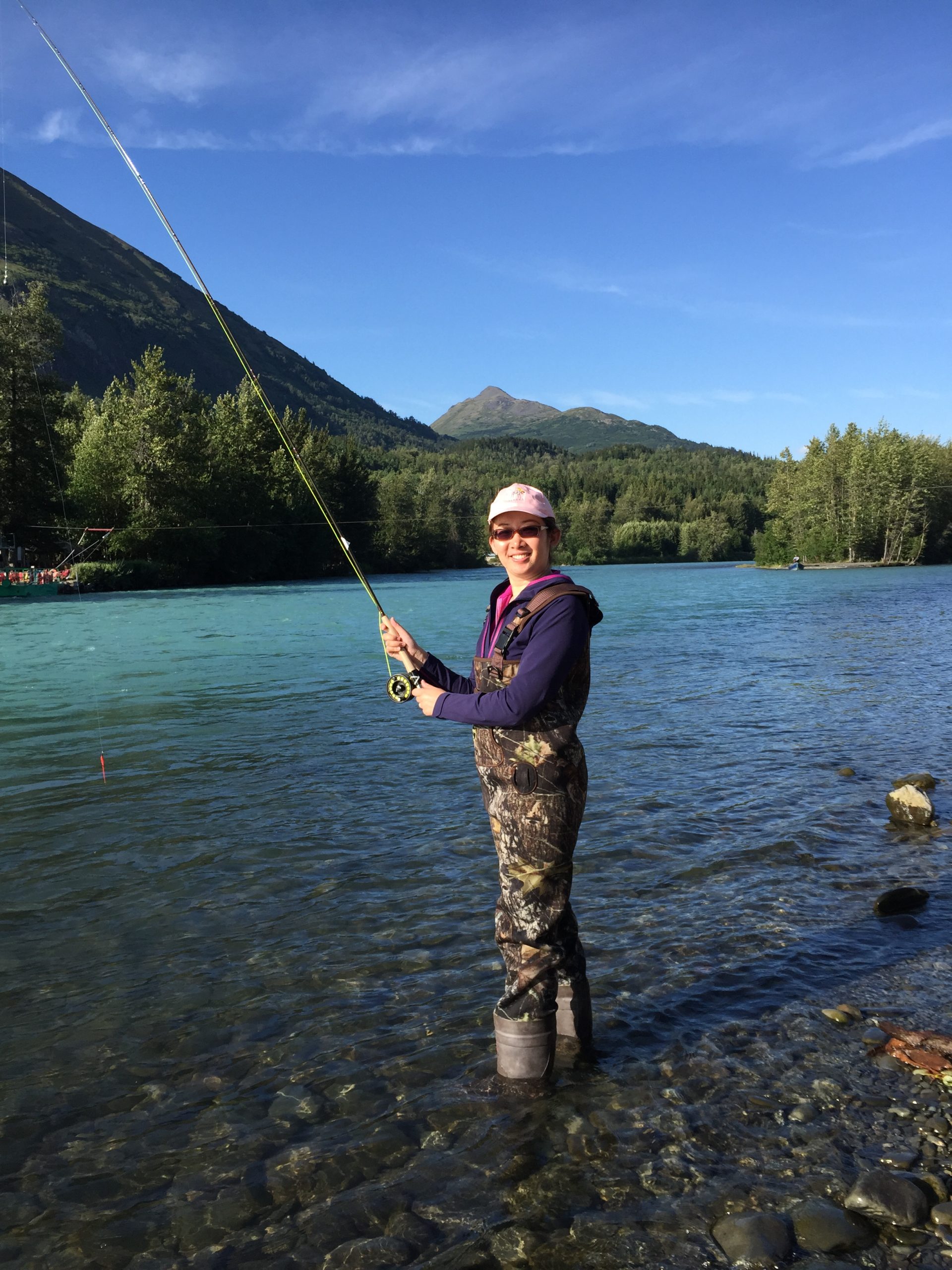
Dr. Qiujie “Angie” Zheng: A journey to Maine and seafood consumer and marketing research
Ocean and seafood were integral parts of the region where I spent my childhood. Growing up in Tianjin, China, a large port city on the west coast of the Bohai Gulf, I was naturally drawn to the sea. The proximity to the ocean meant that access to a variety of delicious seafood was a regular part of my life. However, it wasn’t until I began my academic career at the University of Alaska Anchorage, and later continued it at the University of Maine, that I connected these personal experiences with my profession.
Trained as an economist at Washington State University, my research has focused on consumer preferences, choices, and valuation, as well as consumer behavior, food and seafood marketing, and business aspects of agriculture and aquaculture. I feel incredibly fortunate to have lived in Alaska and Maine, two of the most beautiful coastal places in the world, both rich in coastal resources and seafood.
Transitioning to the University of Alaska Anchorage from the private sector, my first job after graduate school, marked the beginning of my journey as a junior researcher. Relocating to Alaska, I developed a fondness for consuming wild Alaska salmon and engaging in fishing as an Alaska resident. This led me to wonder why such delicious, natural, clean, and high-quality wild Alaska salmon was not readily available in China, despite its position as one of the largest consumer markets dominated by farmed salmon. Following my curiosity and interest, I initiated my first marine and seafood related research project titled “Consumer Preference and Market Potentials for Alaska Salmon in China”. In this project, I investigated Chinese consumers’ preferences and willingness to pay for various attributes of salmon products, especially the production environment, and assessed the emerging demand for imported sustainable wild Alaska salmon fillets and varietal parts in the Chinese market. The study provides crucial insights into developing a sustainable business model for both importing and exporting countries to allocate resources efficiently and to evaluate the potential for increasing sales of Alaska salmon in China.
Upon moving to Maine, I began exploring and learning about new seafood varieties. I have enjoyed diving into potential research topics by immersing myself as a consumer and drawing from academic literature, market trends, and industry insights. I am fascinated by the numerous varieties of seafood available in Maine, and appreciate the many opportunities to learn about the fishery and aquaculture industry’s problems directly from stakeholders and collaborate on research projects with interdisciplinary teams. After joining the Maine Business School at the University of Maine, I have worked on multiple research projects focused on consumer perspectives of seafood products and their attributes, directly related to Maine. I have examined consumer valuations of novel food product attributes, sustainable farming and aquaculture practices, technological innovations, and the environmental benefits inherent in food and seafood products.
Maine is a key contributor to the U.S. seafood market, producing a wide variety of high-quality and valuable seafood products like lobster, oysters, and seaweed. Fishermen and seafood farmers in the state have embraced technological innovations and sustainable practices to produce high-quality seafood while conserving the coastal environment. In one project, my collaborators and I estimated U.S. consumers’ valuation for lobster harvested using ropeless technology, a novel technology that could potentially be adopted to help reduce the risks of North Atlantic right whale entanglement, and examined which types of information are effective in nudging consumers to bear the cost of such technology. Our findings offer stakeholders a comprehensive understanding of U.S. consumers’ perspectives on adopting ropeless fishing technology for right whale conservation and suggest communication and marketing strategies that help consumers understand the necessity and encourage them to pay premiums for such products. In another project, we interviewed Maine oyster farmers to learn about their innovative practices to enhance oyster product quality and designed a survey to collect data from U.S. oyster consumers to understand how they value these improvements. The results are expected to provide valuable insights to help farmers better align their production, marketing efforts, and pricing strategies with market demand.
In a recently published paper, my collaborators and I conducted a large national survey in the U.S. to investigate the different characteristics of seaweed consumers and non-consumers and estimated their preferences and attitudes toward seaweed and value-added seaweed products, for which Maine is a leading producer in the U.S. Based on our findings, we provided suggestions about potential marketing strategies for the seaweed industry stakeholders to expand the seaweed market to meet consumers’ needs.
Every individual is a consumer, and each consumer has a unique perspective. I find the heterogeneity and dynamics in consumers’ preferences and choices fascinating, particularly considering the interventions and factors that may influence consumer behavior. As a researcher at Maine Business School, I am glad to be able to align my research interests and expertise with the needs of the state’s prominent seafood sector. I am committed to designing research to address business and policy questions, providing insights to support consumer-driven and data-driven decision-making processes.
